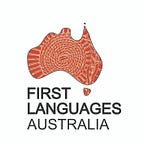Aunty Gloria’s never ending stories
By ABC Open Producer Rachel Lucas for ABC Mother Tongue, 18 March 2015
When you walk through the Art Shed, a converted studio space that once was a service station and mechanics workshop, you can’t help but be overwhelmed by the diversity of artworks hanging from every spare inch of space on the walls. But on talking to the gallery’s indigenous elders, you soon find out that the artists who frequent this community space have a lifetime of material to draw upon.
Morwell artist, author and elder Aunty Gloria Whalan is one such artist, an amazing woman who has a life story worthy of love, loss, deception, protection and ultimately survival. As part of the stolen generation, Gloria was raised by her white grandmother and did not find out she was Koorie until she was 49 years old.
Gloria’s people are Wiradjuri, near Lithgow New South Wales and she started drawing using charcoal from the fire at a young age. When Gloria was 27 years old, she was deserted by her husband and left to raise six children under the age of ten. She painted pictures to get money to buy food and eventually started a business drawing and teaching folk art. However, despite her hardships Gloria has also managed to be a foster parent to a number of foster children over the years.
I met Gloria while searching for contributors for ABC Open’s Mother Tongue project. We were recording radio stories for the Shearwater Festival in November 2014. Overwhelmed by Gloria’s eloquence in recounting her own life story, I was surprised to learn that she was not only an accomplished artist, but also a children’s book author!
She handed me a number of books, including a copy of Guulaangga, the Green Tree Frog which she recorded as a Mother Tongue story for ABC Open. Like all Gloria’s children’s stories, the book stars a native animal, and is cleverly designed to teach young children about the intelligence of other living creatures, and how they play a valuable role in the greater ecosystem.
On talking me though some of her favourite works hanging from the gallery walls behind us, Gloria talks me though some of her paintings. The Cliffs of Wiradjuri (pictured centre frame)tells the story of the Wiradjuri people that were massacred on the Wiradjuri cliffs.The silhouettes represent the Wiradjuri people and the rock art animals on the side of the canvas depict the ancient landscape.
Whalan Women is a picture about strong single women who survive hard times (Whalan means strong in Wiradjuri). It depicts the story of women who are deserted with children and how they have to find food and shelter for the children with no money.
“In Aboriginal times, we took everything from the earth and fed our children, but now it’s much harder for everybody” says Gloria. “I wanted to depict strong women in this painting”.
Gloria’s favourite piece Lone Aboriginal Stockman, conveys the silhouette a mysterious man. It is her father, who was an Aboriginal stockman. The painting is a point of meditation for Gloria, who never knew her father, never saw a photo of him but has spent her life wondering if he he knew of her.
“It was very hard for Aboriginal people to find their parents, because there was no paper work and everything was lost”, says Gloria. However she was able to piece together her history from the stories of Aboriginal elders in the community before they passed on.
In exhibiting and hopefully selling some of these works throughout March, Gloria and the artists from the Art Shed are hoping to raise enough money to fund a trip to Tasmania later this year, where they can meet Tasmanian elders and exchange knowledge, stories and craft techniques.
The Morwell Art Shed is a community art space open Monday Tuesday and Wednesday from 9–3pm. For more information contact the Art Shed ph.044 851 3532
